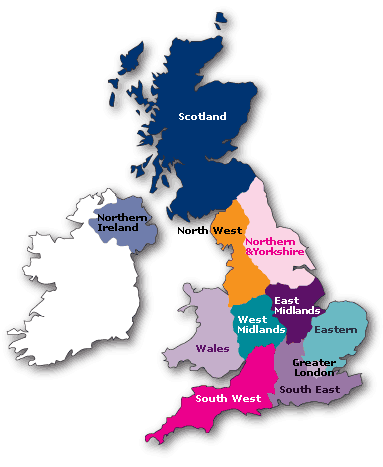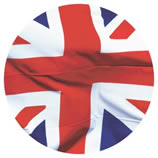UNITED KINGDOM

About UK

The United Kingdom of Great Britain and Northern Ireland, or UK, is in Western Europe. It comprises the island of Great Britain (England, Scotland and Wales) and the northeastern one-sixth of the island of Ireland (Northern Ireland), together with many smaller islands. The UK lies between the North Atlantic Ocean and the North. The UK's primary industry was once dominated by the coal industry, heavily concentrated in the north, the Midlands and south Wales. This is all but gone and the major primary industry is North Sea oil.
Education

Education system in UK is similar to that of India. British higher and further education provides value for money by offering shorter, more intensive courses than are available in many other countries, thereby reducing living expenses and time spent away from home. Britain has long been a popular destination for Indian students. There are more than three thousand educational institutions that welcome international students in the UK
Universities that we represent
- Birmingham City University
- Middlesex University
- University of the West of Scotland
- Liverpool Hope University
- University of Central Lancashire (uclan)
- University of Strathclyde
- Bath Spa University
- University of Bedfordshire
- York St. John University
- University of the West of Scotland
- University of Wolverhampton
- Northumbria University
Qualifications Offered

Bachelor’s Degree: Degree Courses in Arts and Sciences. UK degrees are only for three years.
Courses Offered:
Accountancy and Finance, Advertising, Animation, Architecture, Art, Design and Visual Communication, Business & Management, Computer, IT and Software Engineering, Construction, Criminal Justice, Economics, Education Studies, Engineering, English, Environmental Planning, Fashion and Textiles, Finance, Garden design, Geography, Graphic Design, Health and Social Care, Horology, Housing, Human Resource, Illustrations, Information Studies, Jewelry, Journalism, Landscape Architecture, Law, Management, Marketing, Media and Multimedia, Midwifery, Music, Nursing, Photography, Psychology, Public Relation, Quality Assurance, Radiography, Social Work, Social Sciences, Speech and Language Therapy, Surveying, Teachers training, Town and Country Planning.

Master’s Degree: UK Master’s degrees are respected and valued all over the world. Most universities require good performance at the undergraduate level, in relevant area, in order to consider admission into their Master's level programs. Most Master's programs are of 12 months duration. MBA admission requires work experience of at least 2-3 years at the managerial level, in all decent UK universities.
Courses Offered:
Accountancy and Finance, Architecture, Art, Design & Visual Communication, Banking, Business & Management, Computing, IT & Software Engineering, Construction, Education & Teacher Training, Engineering, English, Environment, Fashion, Finance, Garden Design, Health & Social Care, Horology, Housing, Information Studies & Library Mgmt., Jewelry, Journalism, Landscape Architecture, Law, Logistics, Management, Marketing & Public Relation, Media, Multimedia & New Media, Music, Nursing & Midwifery, Planning, Property & Construction Mgmt., Quality Assurance, Radiography, Social Sciences & Research Programs after Graduation.
Admission Requirements

Admission is based on individual institutions' requirements.
- Good academic background.
- Good Test Scores in your English Language Test such as IELTS or TOEFL before the university will confirm your seat on the course IELTS. Minimum scores required are 6.0 to 7.0 for IELTS and 213 to 250 (CBT) for TOEFL. The minimum score required in TOEFL by most universities for admission is 82 (Internet Based Test) and 230 (Computer-based test).
- Recommendations Letters (Provided by lecturers/professors/ Principal who have taught you at your undergraduate level. Recommendations must reflect you academically and even personally.
- The personal essays, and/or statement of purpose, play a very important role in the process of evaluating your application for both admission as well as financial aid because it gives the faculty assessing your application their most significant impression of you as an individual.
- Résumé is an important part of your application. It must include all information of professional work experience along with the details like positions held, achievements and range of work. Many A number of professional and vocational courses require relevant work experience. For instance, many MBA's or master’s courses in information studies require at least a couple of years’ work experience.


